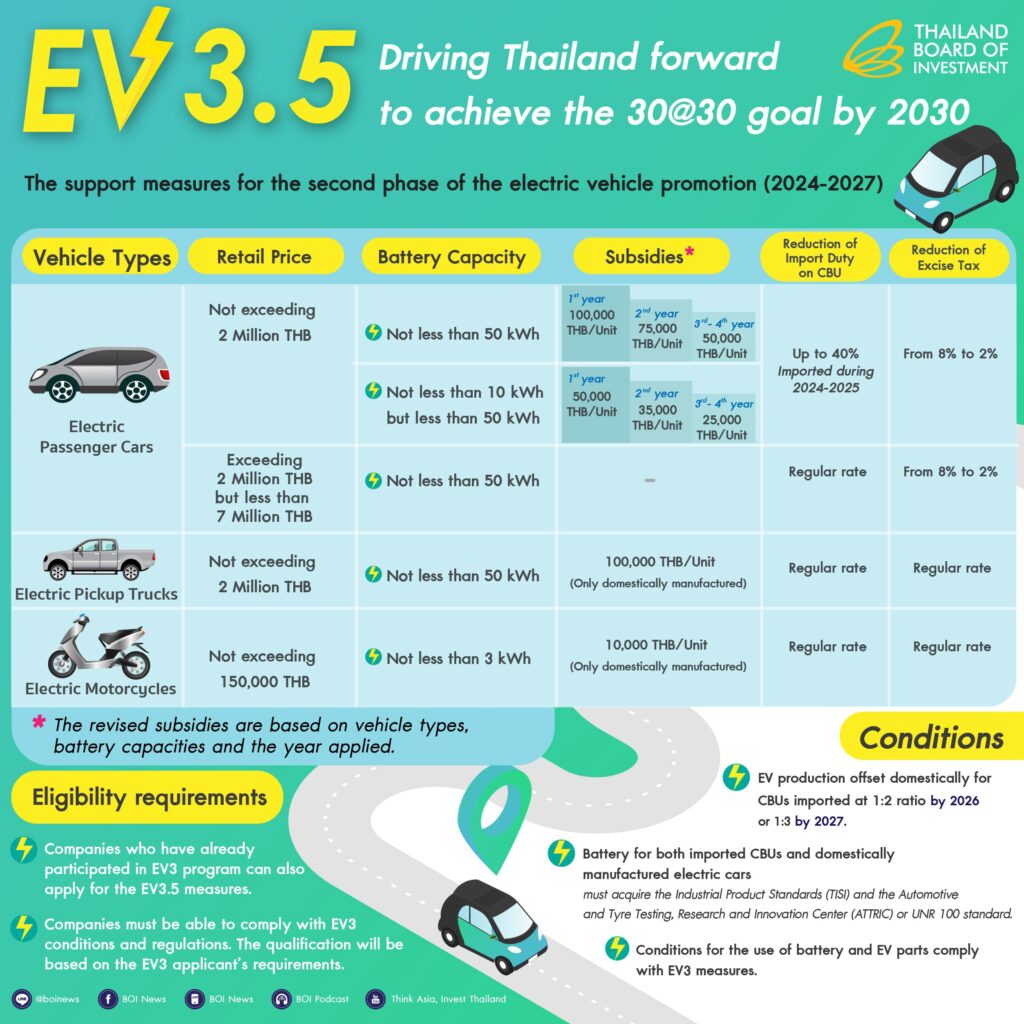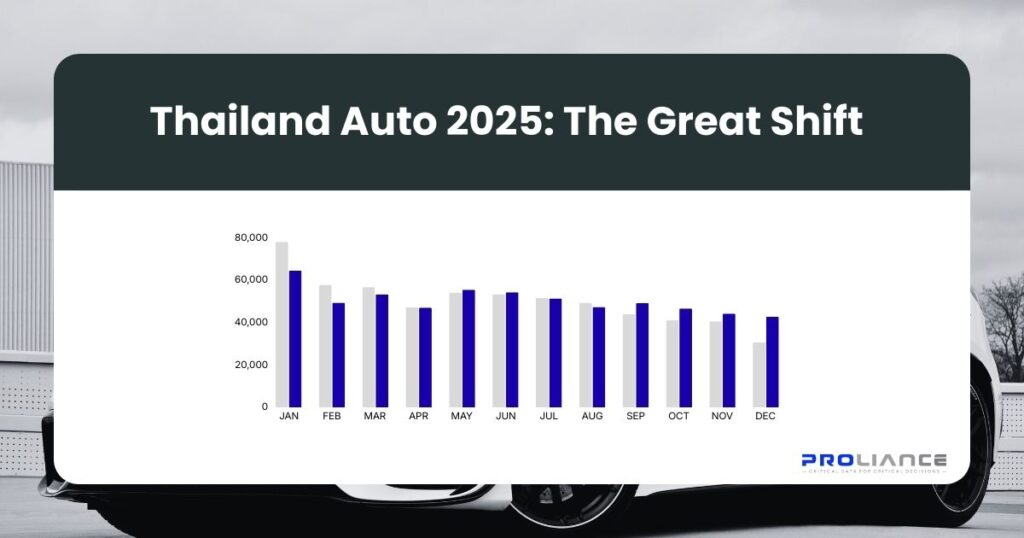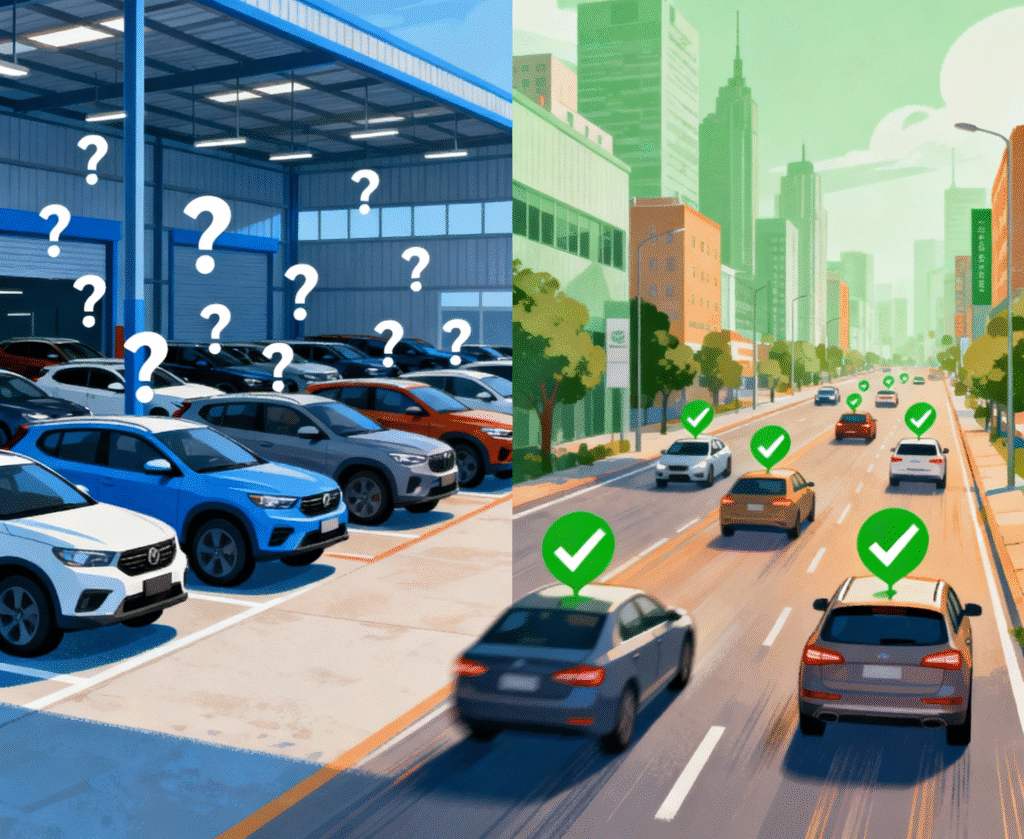
Overview of EV 3.5 in Thailand
Currently, Thailand is moving towards becoming an electric vehicle (EV) society with various policies and measures that facilitate the use of electric cars. In particular, the EV Development Plan Phase 2, also known as “EV 3.5,” aims to propel Thailand into becoming a hub for EV production and assembly by 2030.
Key Support Measures Under EV 3.5
EV 3.5 introduces a variety of support measures to attract manufacturers, entrepreneurs, and consumers to adopt electric vehicles:
-
Excise Tax Reduction
Battery Electric Vehicles (BEVs) will receive up to 100% excise tax exemption for a period of 8 years.
-
Subsidy Support
The government provides subsidies of up to 150,000 baht per vehicle for BEVs and up to 70,000 baht per vehicle for Plug-in Hybrid Electric Vehicles (PHEVs).
-
Infrastructure Promotion
The government plans to install EV charging stations nationwide and support the development of related technologies.
-
Regulatory Improvements
The government is updating various regulations to facilitate the use of electric vehicles.
Expected Outcomes of EV 3.5
- A significant increase in the number of EVs on the road: It is projected that by 2036, there will be 1.2 million electric vehicles on Thai roads.
- Rapid growth of the EV industry in Thailand: Thailand is expected to become a major center for EV production and assembly in the Southeast Asian region.
- Reduction of pollution and greenhouse gases: Electric vehicles emit no exhaust, thus helping to reduce air pollution and greenhouse gases.
Challenges and Obstacles to Address
Despite the benefits, several challenges remain:
- High prices of electric vehicles: Electric vehicles are still more expensive than conventional fuel vehicles.
- Insufficient charging infrastructure coverage: There are still few EV charging stations, and they are not widely distributed.
- Concerns about battery range: Some consumers are still worried about the distance electric vehicles can travel on a single charge.
Conclusion: Moving Towards an EV Society in Thailand
EV 3.5 marks a major advance in Thailand’s electric mobility promotion. The government’s support measures aim to encourage manufacturers, entrepreneurs, and consumers to embrace electric vehicles. However, overcoming remaining obstacles is essential for Thailand to achieve its goal of becoming an EV production and assembly hub by 2030. To realize this ambition, stakeholders must address key challenges in the EV ecosystem.


